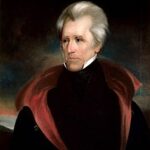The Jackson Expansion Defense Slavery Policies
Andrew Jackson owned over 150 enslaved people at his Hermitage plantation. His personal investment in slavery shaped his presidential policies from 1829 to 1837. Jackson viewed slavery as essential to Southern economic prosperity and political power.
Federal Mail Censorship Decision
In 1835, Jackson refused federal protection for abolitionist mail delivery. 📊 Southern postmasters burned anti-slavery pamphlets without federal intervention. This decision violated free speech principles but pleased slaveholding constituents. Jackson prioritized sectional harmony over constitutional rights.
Territorial Expansion Support
Jackson actively supported slavery’s extension into new western territories. He believed new slave states would balance growing Northern political influence. 💰 Economic interests drove his territorial policies as much as political calculations. His administration opened millions of acres for slave-based agriculture through Indian removal.
Political Consequences
These policies strengthened the slaveholding South’s congressional representation significantly. ⚠️ Jackson’s decisions delayed meaningful abolition discussions for decades. His support emboldened pro-slavery politicians across the nation. The policies created lasting divisions that contributed to future sectional conflicts.
Impact:
Strengthened Slaveholding Political Power
Jackson’s policies significantly increased Southern political influence in Congress. 📊 New slave states provided additional Senate seats for pro-slavery representation. The Three-Fifths Compromise gave slaveholding states more House representatives. His decisions delayed abolition movements by reinforcing slavery’s political legitimacy.
Constitutional Rights Violations
The mail censorship decision established dangerous precedents for federal speech restrictions. 🔥 Constitutional scholars criticized Jackson’s selective enforcement of federal postal laws. His administration chose sectional peace over First Amendment protections. These violations weakened federal authority and constitutional principles nationwide.
International Reputation Damage
Jackson’s pro-slavery stance harmed America’s international standing significantly. 🌍 European nations increasingly viewed the United States as hypocritical. Britain and France questioned American commitment to human rights principles. The policies undermined diplomatic relationships and moral authority globally.
Long-term Sectional Divisions
These decisions deepened North-South tensions that exploded during the Civil War. Jackson expansion defense slavery policies made compromise increasingly difficult. 📉 His precedents encouraged future pro-slavery presidential administrations. The strengthened slaveholding power structure resisted abolition efforts for three decades.
